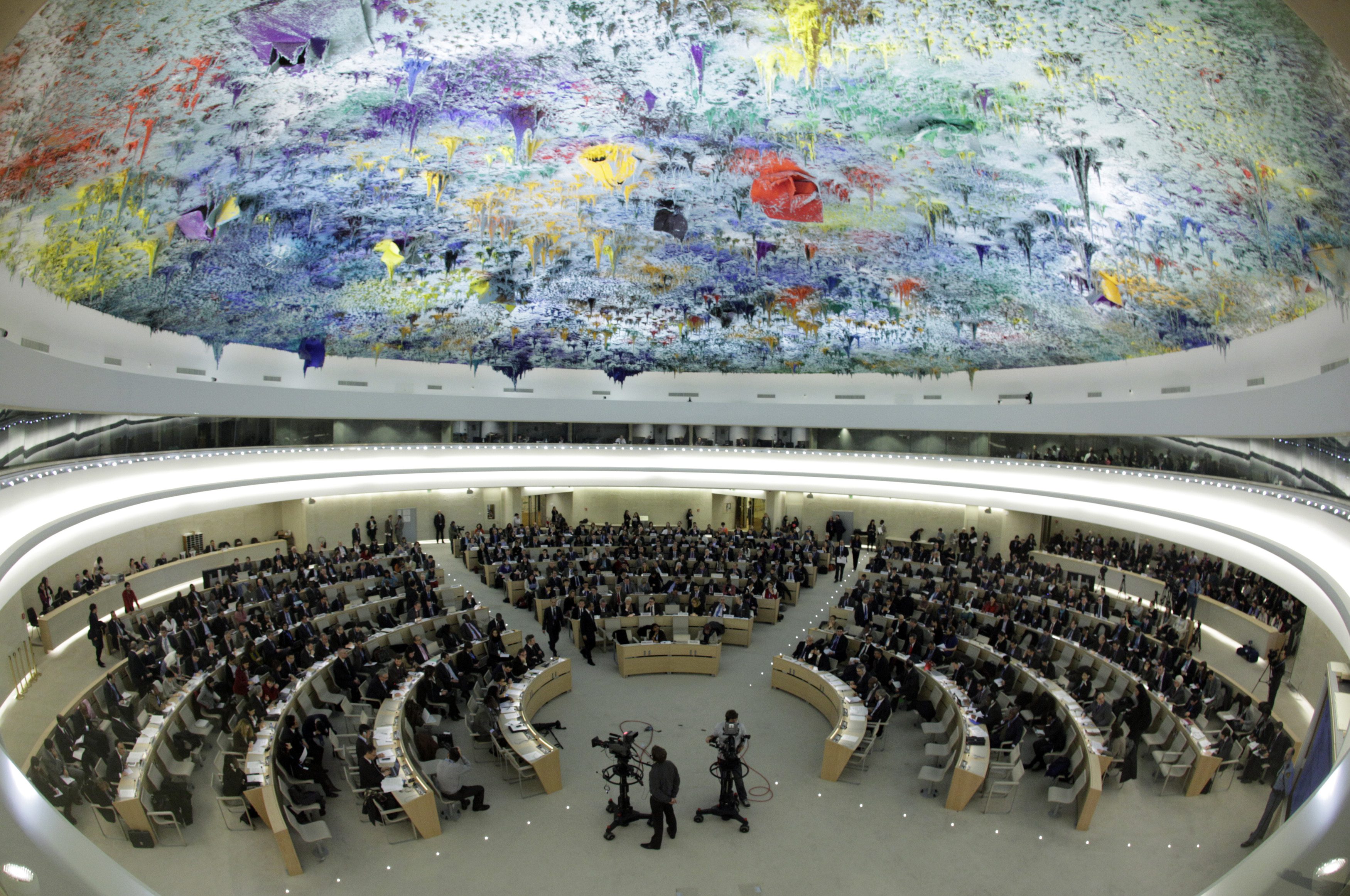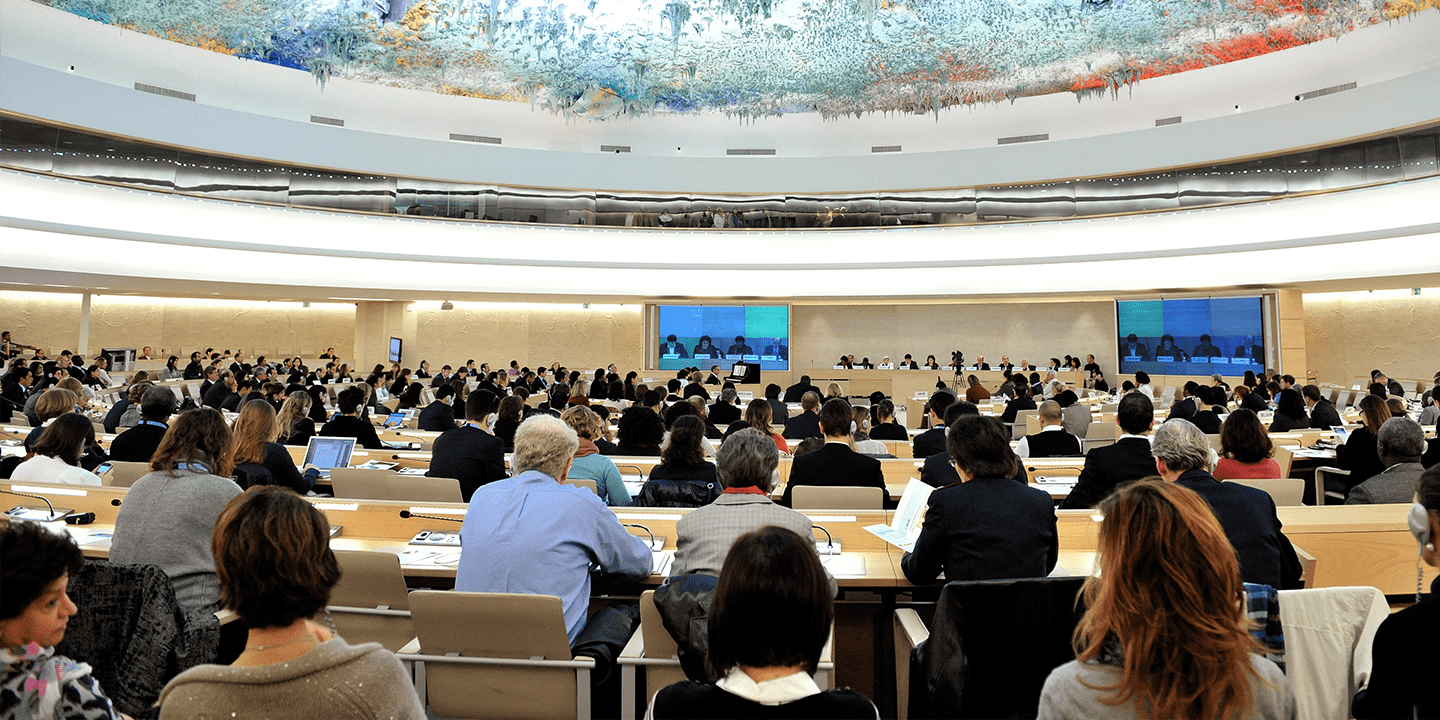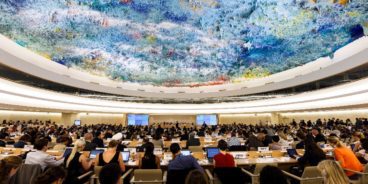

Statement delivered by the Group of Friends of R2P during the Interactive Dialogue with the Special Rapporteur on Human Rights Defenders at the 52nd session of the Human Rights Council
Mr. President,
I have the honor to deliver this statement on behalf of the Group of Friends of the Responsibility to Protect.
The participation of Human Rights Defenders (HRDs) and wider civil society (CSOs) is a cornerstone of the HRC and wider UN human rights system. We thank the Special Rapporteur for her report and her continuous strong leadership. By gathering information on risks for HRDs as well as engaging with and providing recommendations to governments on how to preserve and strengthen their commitment to human rights and fundamental freedoms, the Special Rapporteur contributes to the greater protection and recognition of HRDs around the world. In this regard, we would also like to highlight this year’s 25th anniversary of the Declaration on human rights defenders, which forms the cornerstone of the Special Rapporteur’s annual report. We also thank the Special Rapporteur for highlighting, in her latest report, the crucial role of NGOs documenting and collecting information on war crimes and other violations of international law and provide this information to UN human rights mechanisms and institutions.
As highlighted by the UN Secretary General in his annual report on the Responsibility to Protect in 2019, HRDs are vital actors in documenting, mitigating, and preventing human rights violations and abuses, including those at risk of escalating into atrocity crimes. HRDs and CSOs are often the first to witness warning signs and risk factors of atrocity crimes and are equipped with in-depth understanding and expertise that states should incorporate into any atrocity prevention response.
HRDs and civil society organizations are also at the forefront of promoting justice and accountability, monitoring and reporting on international law violations, working directly with affected communities and mobilizing action on the national, regional and multilateral levels when warning signs or risk factors of atrocity crimes emerge, or to maintain international attention on protracted crises. HRDs also stand in solidarity with one another and with vulnerable populations around the world, taking collective and proactive steps to spur the international community into action to prevent atrocity crimes and uphold the Responsibility to Protect (R2P). In addition, HRDs are also central stakeholders in working with government to deepen their understanding of the Responsibility to Protect and build local, regional and international capacity to better protect populations under threat, including through action at the Human Rights Council (HRC).
We welcome the Special Rapporteur’s emphasis on the successes of HRDs in promoting human rights and fundamental freedoms and the protection of those rights and freedoms around the world, including in advancing justice, changing legislation, protecting the vulnerable and contributing to holding perpetrators accountable for violations and abuses. Often, this is done at great risk or danger for themselves and their families. Around the world, HRDs, including those working in atrocity prevention, are at risk of, or are experiencing, repression or arbitrary restrictions on their work, preventing them from carrying out their work safely. This may include harassment, undue restrictions, reprisals, arbitrary criminal proceedings or attacks, including extrajudicial killings. Many HRDs also operate in a context of serious legal and administrative obstacles with domestic laws used to limit or jeopardize their work.
This not only puts at risk the safety and security of HRDs and CSOs documenting human rights violations and abuses and providing relief for populations in need but can also have disastrous consequences for vulnerable communities dependent on the support of local and national civil society actors. We therefore condemn, in the strongest terms, actions taken that limit or endanger the crucial work of HRDs and call on all states to uphold their obligations under international law and protect the vital role of HRDs and civil society organizations. We also call on all governments to systematically engage with local actors, particularly victim and survivor communities and others affected by atrocities, to develop prevention strategies and responses that are rights-based and community-informed, to better prevent atrocity crimes before they occur.
Thank you.
Related Content

